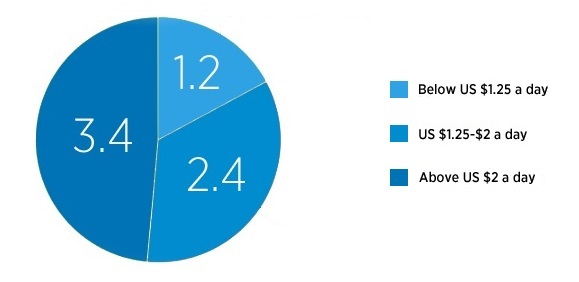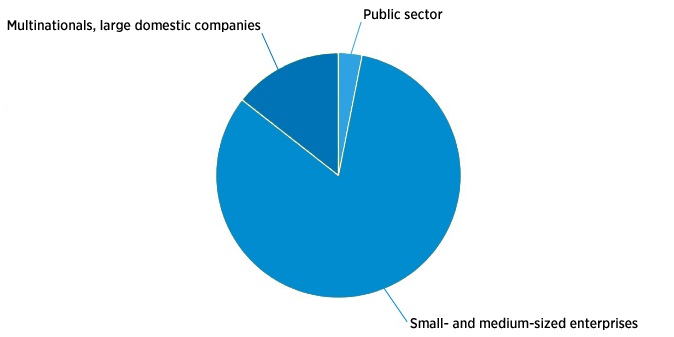Hand in Hand Zimbabwe Empowers Rural Communities through Inclusive Sustainable Development. We promote Food Security and Livelihood Programmes that aim to reduce poverty and improve wellbeing (community, mental and maternal health and WASH) by fostering community engagement, social inclusion, and support, while promoting entrepreneurship, climate-smart agriculture, and environmental sustainability.
This will be achieved through the formation of Self-Empowerment Groups (SEGs) and the development of small enterprises, leading to employment creation and improved livelihoods. By adopting a community-led and inclusive approach, the Food Security and Livelihood Programme aims to reduce poverty and improve wellbeing, while promoting sustainable development and environmental stewardship.
24,381 individual jobs created from October 2015 to June 2024. Our entrepreneurs make their own success, breaking the cycle of dependency.
90,000 lives improved between October 2015 and June 2024. Every business we help create benefits an average of five family members – young, old and everywhere in between
18,156 individual enterprises created and enhanced. Our entrepreneurs farm crops, manufacture goods, run shops and so much more. Members are linked to markets through field days, market fairs and exhibitions. Members also access micro-loans to enhance their businesses.
Why Community Engagement, Social Inclusion and Support, Health and Wellbeing Entrepreneurship, Climate Smart Agriculture and Environment Matter in Our Approach
At Hand in Hand Zimbabwe, we prioritize community engagement, social inclusion and support, health and wellbeing, entrepreneurship, climate-smart agriculture, and environment because they are interconnected pillars that address the multiple facets of food security livelihoods and promote socio-economic resilience. By focusing on these areas, we can create a comprehensive approach that fosters resilient communities, promotes sustainable economic growth, improves health and wellbeing outcomes, supports vulnerable populations, and protects the environment. Our holistic strategy recognizes that community development is not just about economic growth, but also about promoting social inclusion, health, wellbeing, and environmental sustainability, ultimately creating a brighter future for all.

Since 2015 when the world’s governments, civil society organizations, and citizens rallied around the UN Millennium Development Goals, some 1.2 billion people continue to live on less than US $2.25 a day, struggling to access necessities like food, clean water, and healthcare. Concentrated overwhelmingly in sub-Saharan Africa and central Asia, this ‘bottom billion’ remains largely untouched by the global project to eradicate poverty, with limited opportunities for sustainable livelihoods and vulnerable to food insecurity and poor health outcomes.
An average of five family members benefits from every job we create – particularly for women, who make up over 90 percent of Hand in Hand entrepreneurs. Conservatively estimating an average family size of four, then, some 250 million jobs are required to lift the bottom billion out of extreme poverty, ensure food security, and improve health and well-being. By empowering entrepreneurs and creating sustainable livelihoods, we can help break the cycle of poverty and ensure that millions of people have access to nutritious food, clean water, and quality healthcare, ultimately improving their overall health and well-being.”
Across the developing world, informal small- and medium-sized enterprises dominate the economic landscape. In India, for example, home to Hand in Hand’s largest operation, informal jobs in agriculture, manufacturing and more account for 90 percent of GDP. Clearly, the public and formal private sectors cannot and will not provide the 250 million jobs required to lift the bottom billion out of poverty.

But for all its size and dynamism, the informal sector cannot overcome poverty on its own. A lack of capital and business knowledge, along with barriers to accessing microcredit and crucial larger markets, keep millions from realizing their potential. That’s where Hand in Hand comes in, providing would-be entrepreneurs with the skills and training they need to work their own way out of poverty – without fuelling the cycle of dependency.
In India, where our job creation model was first tried and tested, jobs cost as little as US $38 each to produce. In Afghanistan – our most challenging context, hampered by security concerns and difficult geography – that figure is approximately US $328. According to the Institute for the Study of Labor, other NGOs spend up to US $400 per person on training alone.